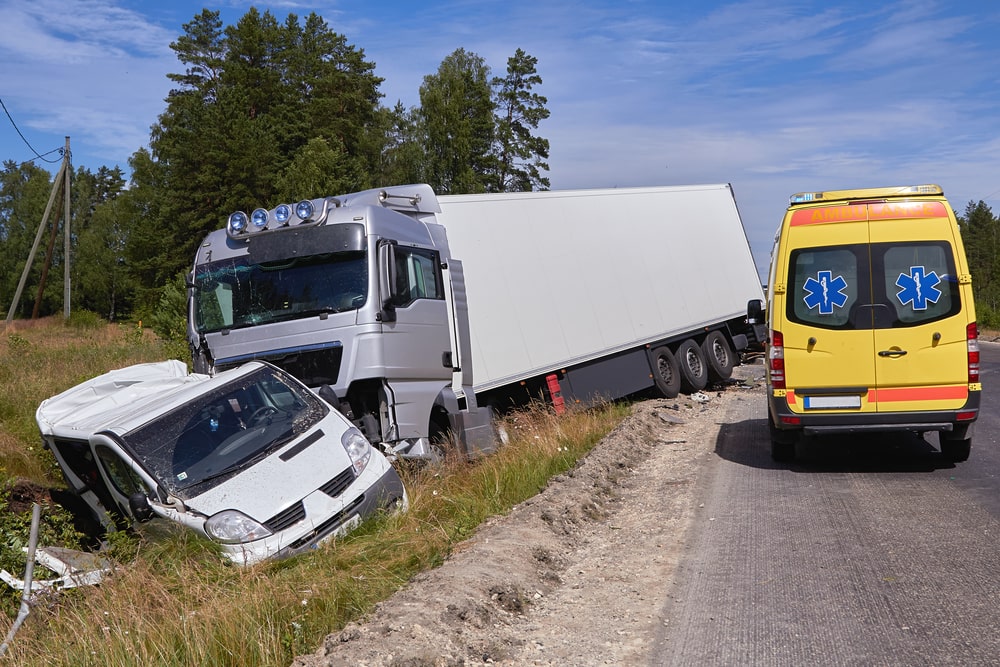Truck accidents can be devastating events, often resulting in severe injuries, significant property damage, and even loss of life. When such accidents occur, understanding the role of negligence is crucial in pursuing a truck accident claim. Negligence is a fundamental concept in personal injury law, and it plays a central role in establishing liability and seeking compensation for victims of truck accidents.
Defining Negligence
Negligence, in the context of a truck accident claim, refers to the failure of a party to exercise reasonable care, leading to harm or injury to another person. Certain elements must be established to prove negligence in a truck accident case:
- Duty of Care: The first element is the duty of care. It must be shown that the party responsible for the accident owed a legal duty to exercise reasonable care. In the case of truck accidents, truck drivers and trucking companies have a duty of care to operate their vehicles safely and in compliance with all applicable laws and regulations.
- Breach of Duty: The second element involves proving that the duty of care was breached. This means demonstrating that the responsible party failed to meet the expected standard of care. In truck accident cases, this could involve speeding, reckless driving, driving while fatigued, or failing to maintain the truck properly.
- Causation: It must be established that the breach of duty directly caused the accident and resulting injuries. This means that if it were not for the negligent actions of the responsible party, the accident would not have occurred.
- Damages: Finally, the injured party must have suffered actual damages to claim negligence successfully. These damages include medical expenses, property damage, lost wages, pain and suffering, and more.
Common Forms Of Negligence In Truck Accidents
Truck accidents can result from various forms of negligence, and understanding these forms is essential when pursuing a claim. Some common examples of negligence in truck accidents include:
- Driver Negligence: This is the most common form of negligence in truck accidents. It includes actions such as distracted driving, speeding, driving under the influence of drugs or alcohol, and failing to obey traffic laws. Fatigue is also a significant factor, as truck drivers often face long hours on the road.
- Trucking Company Negligence: Trucking companies can be liable for accidents if found to be negligent. This can include inadequate hiring practices, failure to train drivers properly, and pressure on drivers to meet unrealistic delivery schedules, leading to driver fatigue.
- Maintenance Negligence: Trucking companies are responsible for properly maintaining their vehicles. Refraining from following routine maintenance, failing to inspect trucks before each trip, or cutting corners on repairs can all lead to accidents. In such cases, the trucking company can be held liable for negligence.
- Cargo Loading Negligence: Improperly loaded or unsecured cargo can shift during transit, leading to accidents. Cargo loading negligence can involve overloading trucks, improper weight distribution, and inadequate securing of cargo.
- Manufacturer Defects: Sometimes, accidents occur due to defects in the truck itself or its components, such as brakes or tires. In such cases, the manufacturer or distributor may be liable for negligence in producing or selling a faulty product.
Proving Negligence In Truck Accident Claims
Proving negligence in a truck accident claim can be complex and requires thorough investigation and evidence gathering. To build a strong case, it’s essential to:
- Collect evidence from the accident scene, such as photographs, witness statements, and the police report.
- Obtain the driver’s logbook and records to check for compliance with hours of service regulations.
- Review the truck’s maintenance and inspection records.
- Consult accident reconstruction experts if needed to establish causation.
- Document your injuries, medical treatment, and expenses to demonstrate damages.
In truck accident claims, negligence is a critical concept determining liability and the ability to seek compensation. Understanding the elements of negligence and its various forms in truck accidents is essential for both victims and their legal representatives. If you’ve been involved in a truck accident, consulting with an experienced truck accident lawyer is crucial to help you navigate the complexities of negligence law and pursue a successful claim to obtain the compensation you rightfully deserve. Truck accidents can have life-altering consequences, and holding negligent parties accountable is essential for promoting road safety and providing justice to victims.

